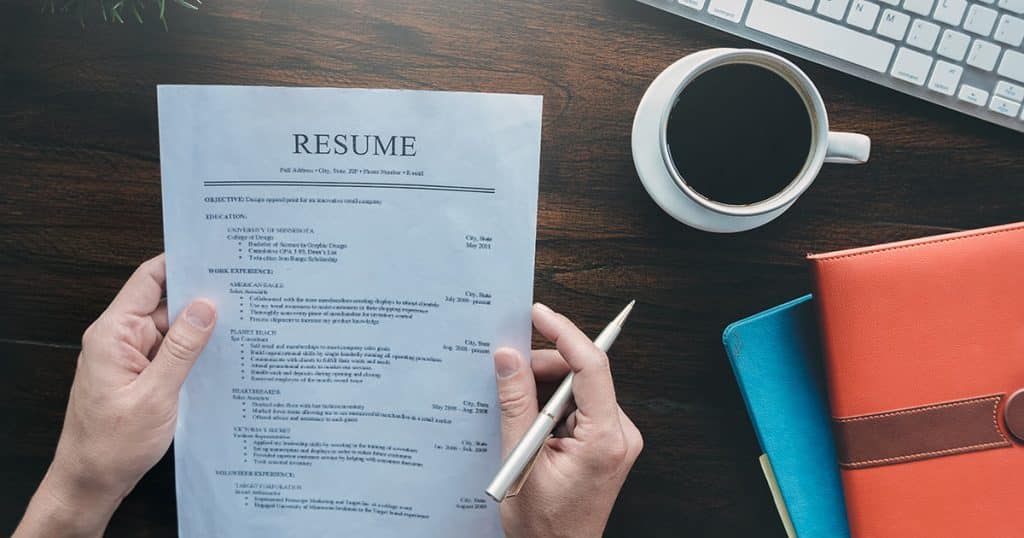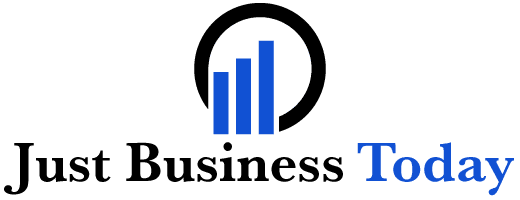The cover letter for a job application is often written almost as an afterthought. But a good one can help you be shortlisted for interview. Now it’s time to write one. How long should a cover letter be ideally?
A cover letter should be less than a page in length, containing around three to four paragraphs. The first paragraph should introduce yourself. The second should explain why you’re a good fit for the position and the company. And the third should thank the employer for considering your application and provide your contact information.
Word Count: 250 to 350 Words

A cover letter should ideally be around 250 to 350 words. This equates to about three to four paragraphs, or roughly half a page to one page in length.
The important thing is to be concise, while still including all the relevant information and making a strong case for why you’re a good fit for the position and the company. You want to make sure that your cover letter is easy to read and quickly conveys your qualifications, while still being professional and well-written.
The ideal word count is around 250-350 words because this nicely allows you to include all the relevant information. You’re able to make a strong case for why you’re a good fit for the position and the company, while still being concise and easy to read.
250-350 words is well under one page in length, making it visually appealing. It fills out a good chunk of the page while also making it obvious that your letter doesn’t go over to the next page.
A word count under 350 words should be enough for you to be specific, providing examples of your qualifications and experiences relevant to the position. It also allows you to show enthusiasm and interest in the role, and explain how you can contribute to the company’s success. You’ll still have enough room to thank the recruiter for considering your application, and invite them to contact you for an interview.
Why Keep It So Short?

A cover letter should be kept short because hiring managers and recruiters often have to review many applications. Simply, they may not have the time or patience to read a long letter.
A short cover letter allows them to quickly understand your qualifications and why you’re interested in the position. This brevity makes it more likely that they’ll read your resume and consider you for an interview.
Additionally, a short cover letter is more likely to be well-written and to the point, which can make a more favorable impression on the reader.
Email Cover Letters Are Even Shorter

The ideal word count for an email cover letter is around 200-300 words. Hiring managers and recruiters receive a large number of emails and may not have time to read a long letter. Therefore, it’s essential to be concise and make your point quickly and effectively.
In an email cover letter, you should focus on the most important points of your qualifications and experiences and how they align with the position and the company. Avoid including irrelevant information or fluff that does not add value to your application. Also make sure your email is easy to read and it is well structured.
An email cover letter should also be written in a more conversational tone than a traditional letter, and should include a professional email signature with your contact information.
It should also include a clear subject line that summarizes the position and your qualifications. Include the cover letter in the body of the email, rather than as an attachment. Additionally, make sure that the formatting of the email is professional and easy to read.
Key Elements of a Cover Letter

We outline an approach here that is generally considered good practice. The goal is to show, without simply reproducing resume content, that you’re qualified and have something special to offer.
Introduction: Why you’re writing
As with any correspondence, the cover letter starts by explaining its purpose. This can be done quickly. In the email or mail header, put down something like “Application for position YY”. Follow up with a short first paragraph along the lines of “I’m writing to apply for the analytical position your company advertised. Please find my resume attached in support of this application”.
Why I’m qualified
The recruiter will want to know whether you are a genuine candidate for the position before reading the rest of the cover letter and the resume. So use the second paragraph to establish this convincingly. Look at the requirements of the position and then sum up your qualifications and experience in a way that shows that you’re suited to the job.
What you bring
Having established your credentials, the next paragraph or two represent an opportunity to sell yourself as a promising candidate. Try to highlight your exceptional qualities or experiences and your passion for the line of work. Keep any descriptions of the job general. Even with good research about the company and occupation, you may not fully grasp what the job entails.
Sign off: What will happen next
The sign off can be brief; for example, ‘I look forward to hearing from you about this application and would welcome the opportunity to interview for the position … Yours sincerely, …”.
After you submit an application, it’s generally up to the recruiter to initiate any further contact. Only after they have shown interest, such as by offering an interview, do we recommend contacting them to seek more information about the role or selection process.
10 Tips for Writing a Cover Letter

The cover letter (or email) for a resume is usually the most conversational element of an application and may be used by recruiters to assess personality. It presents an opportunity to make a good impression.
If done well, recruiters will start to look on you favorably as a prospective colleague and want to give you an interview.
There is no particular format for a cover letter. You are free to adjust your style and content to suit the job and reader.
With all this in mind, here are some tips for writing a good cover letter.
- Tailor your cover letter to the specific job and company you’re applying to. Show that you’ve done your research and understand what the company does and what the position entails.
- Use a professional tone and format. Your cover letter should be well-written and free of errors. Use a standard business letter format and avoid overly casual language.
- Highlight your qualifications and experiences that are most relevant to the position. Use specific examples and quantify your achievements where possible.
- Show enthusiasm and interest in the company and the position. Explain why you’re excited about the opportunity to work there and how you can contribute to the company’s success.
- Keep it concise. As I mentioned earlier, a cover letter should be around 250 to 350 words, or roughly one page in length.
- Proofread your cover letter multiple times to ensure that there are no spelling or grammar errors.
- Customize your cover letter for each job application. It’s not a good idea to use the same cover letter for multiple job applications. It’s important to show that you’ve done your research and you are genuinely interested in the company and position you’re applying for.
- Try to address the letter to a specific person, if possible. It makes the letter more personal and less likely to be ignored.
- End the letter by thanking the employer for considering your application, and inviting them to contact you for an interview or further discussion.
- Finally, make sure to attach your resume or CV along with the cover letter.
Depending on the evaluation style of the recruiter, the cover letter may be closely read or quickly scanned and forgotten. The safest assumption is that it will be scrutinized closely for faults but ready quickly for content. This means you need to be concise and accurate.
Cover Letter Examples

Here are examples of cover letters to give you an idea of length and what sort of details to include.
1. Business graduate applying to be a marketing assistant
Dear Hiring Manager,
I’m writing to express my interest in the Marketing Assistant role with Lerna Courses. I’m a recent graduate of Bond University, holding a Bachelor of Business (Marketing). A marketing role in the education industry would put the knowledge I bring to great use, and enable me to learn and advance your company’s cause.
My skills and experience make me a great fit for a role where I would help drive your company’s marketing efforts. During my time at Bond, I gained experience in market research, social media management, and event planning. I also completed an internship at a marketing agency, working on campaigns for clients in the education sector.
The prospect of working at Lerna Courses is exciting. My skills, experience and enthusiasm could be a great asset to your team. Thanks for considering my application. Please feel free to contact me with any questions or to schedule an interview.
Sincerely, [Your Name]
2. Business economics graduate applying to be a business analyst
Dear Ms Johnson,
I’m writing to apply for the above position, which was advertised in the Times Union on April 30. I‘m currently in the final year of a BA course in Business Economics at City College, Bristol, and expect to graduate in June this year. The degree has prepared me for a range of roles in economic and business analysis.
I have a 4.0 average in relevant modules, including Economic Data Analysis, International Economics, and Economics of Business Strategy. I’ve also learned a great deal about e-commerce and am about to complete a dissertation on the growth of e-commerce in the Americas.
The position is of particular interest because it requires good communication and negotiation skills. I enjoy working with numbers and concepts but also making new contacts and establishing relationships with a wide range of people. To illustrate, as a teaching assistant, I had great success liaising with Mexican companies to organize student activities. I believe I would be able to provide quality service to the international clients you describe by drawing on highly relevant education and skills.
I look forward to hearing from you.
Yours sincerely,
Sarah Bloom
3. Social work graduate applying to be a social worker
Dear Sir or Madam,
Vacancy for Social Worker, Davis County Youth & Family Services
I’m writing in reply to your ad for the above position, which appeared in the Clipper on May 9 and attach my résumé for your attention.
I’m currently studying for a BA in Social Work at Thurston College, Layton, and will be graduating in June 2023. This will make me a fully qualified social worker in the state of Utah.
I have a real enthusiasm and flair for working with children and have extensive experience teaching elementary school children. A new career in social work would make excellent use of the interpersonal, communication, and motivational skills gained in my teaching posts. I also have a long-standing interest in developing children’s sporting potential and am currently the manager of a youth soccer team.
As a social worker, I could make a real difference to the lives of the children and families of your area. I would welcome the chance to work for a local authority such as your own as part of a small team. One of my work placements during my degree was with a local authority of a similar size. I found the small team environment was an enjoyable and productive way to improve community welfare.
I look forward to hearing from you in the near future.
Yours faithfully,
Charles Morton
4. Admin support worker applying to be an administrative assistant
Dear Mr Burns
I’m very interested in the position of Administrative Assistant for Broad and Allen advertised in the Weekly Times on 30 January.
The skills and qualifications you seek match my experience in this area. I spent two years as Administrative Assistant in the Prospective Students Office of Monash University in Melbourne and am experienced with using a number of reporting tools and databases including Excel, Access, Lotus Notes and Crystal Reports. In addition, I have:
- assisted the General Manager of Saturn Satellites for two years providing administrative support, diary and appointment coordination and managing all travel and accommodation bookings for his busy and fast-paced schedule
- confidently work alone and in teams – in both situations I always complete tasks on time and enjoy assisting others to ensure that their tasks also come in on time and on budget
- am currently completing a part-time (evening) diploma of Human Resources at Northern Melbourne Institute of Technology. I’ve used the knowledge and skills gained from subjects including Managing Staff Development and Performance Management to assist in the coordination of staff training and performance reviews.
Enclosed is my resume for your review. I believe I am an excellent candidate for this role and look forward to meeting with you to discuss this position further.
Yours sincerely,
Janice Joplin

Cover letter length should ultimately be decided by how long it takes to state three things: Who I am, what I’ve learned, and how I can contribute to your company. If you write skillfully, this will normally be possible in three short paragraphs.